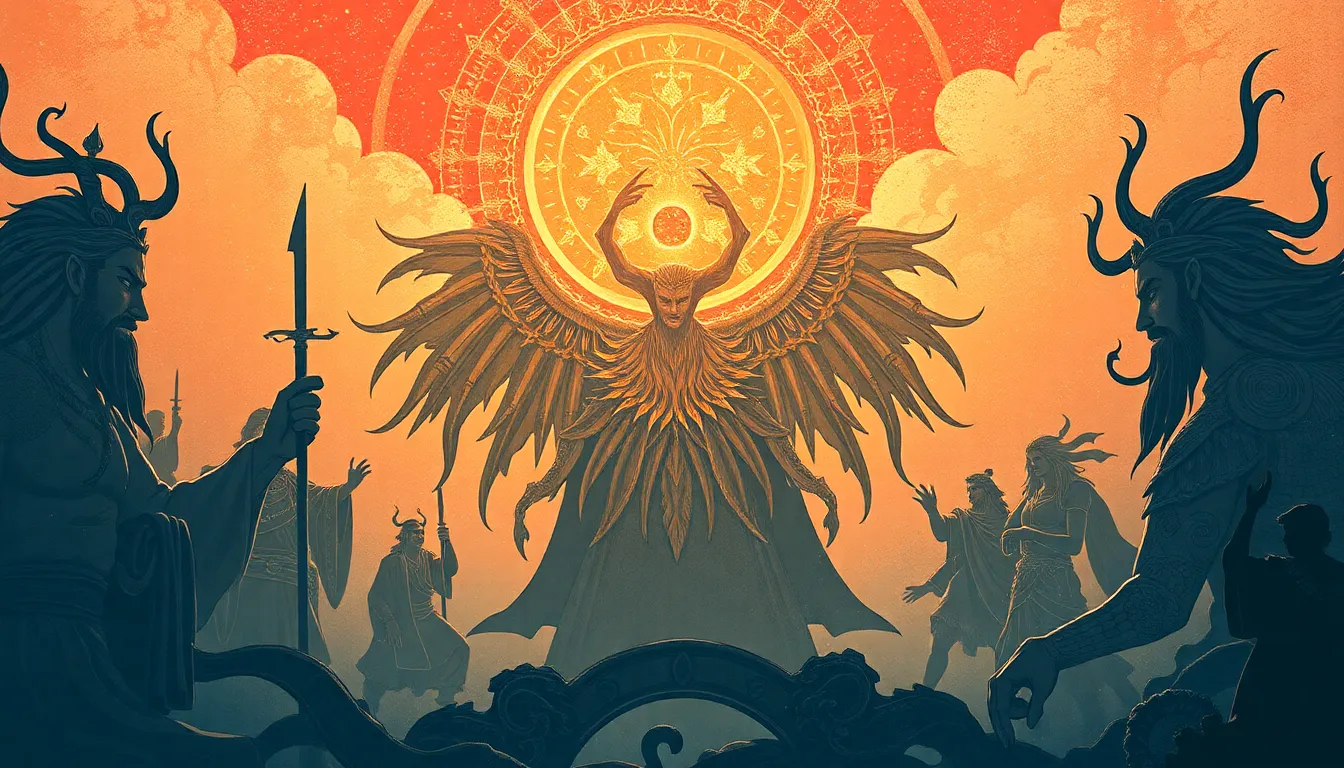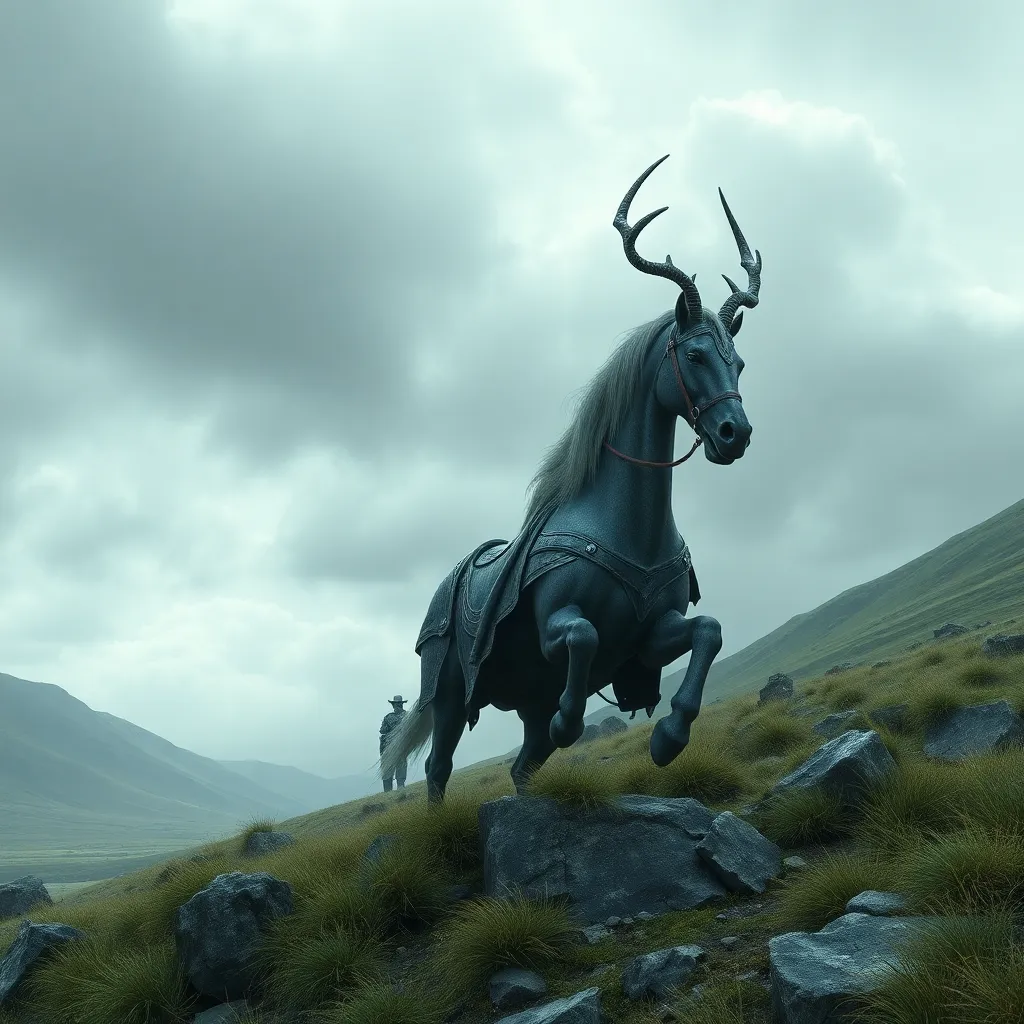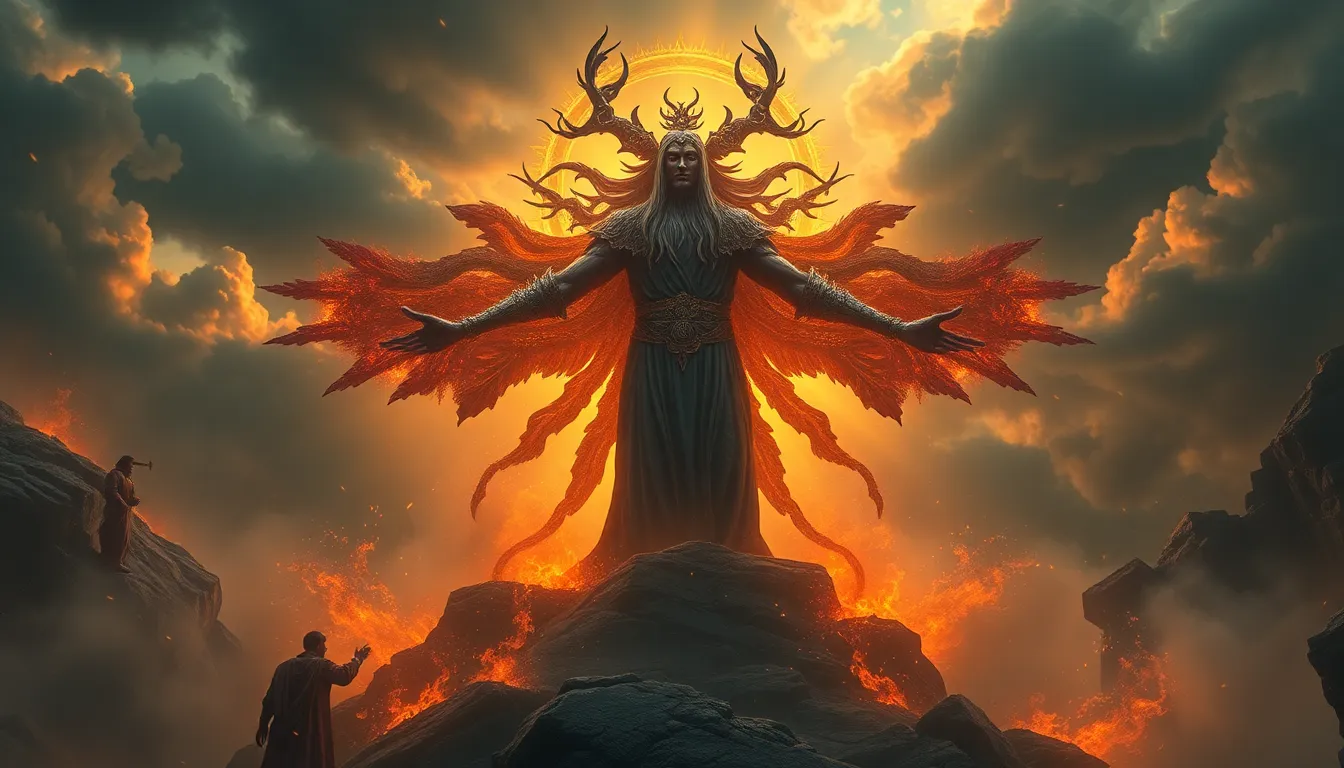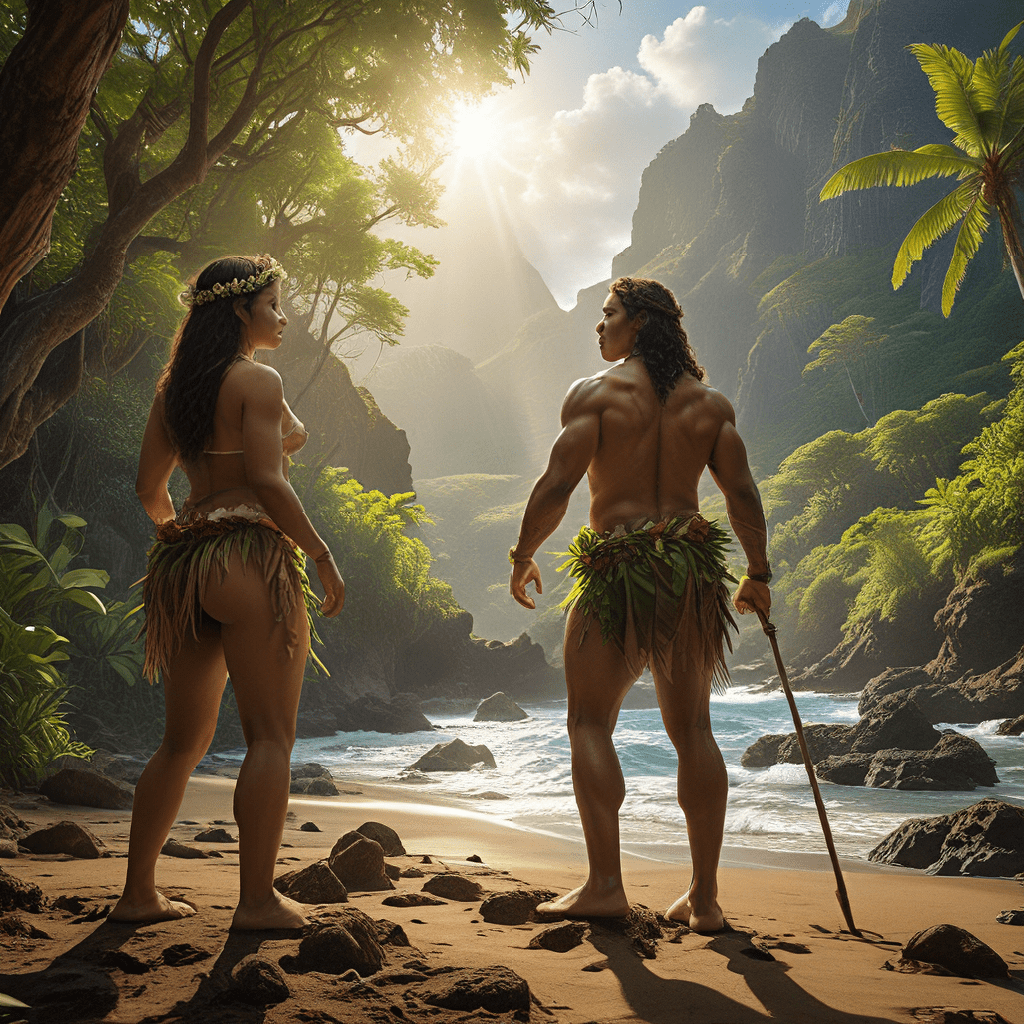Cultural Heroes: Mythical Figures Who Changed the Game
I. Introduction
Cultural heroes are individuals, often elevated to mythic status, who embody the values, ideals, and aspirations of a society. They serve as symbols of hope, courage, and resilience, inspiring generations and influencing cultural narratives. The importance of mythical figures in shaping societies cannot be overstated; they provide a framework through which communities understand their history, identity, and moral compass.
This article focuses on transformative impacts of cultural heroes throughout history, exploring their roles across various civilizations, religions, and modern contexts. From ancient legends to contemporary icons, these figures have left an indelible mark on the human experience.
II. The Role of Myth in Culture
Myth plays a crucial role in culture, acting as a bridge between the past and present. Myths are traditional stories that explain natural or social phenomena, reflecting the beliefs and values of the societies that create them.
Myths serve several functions:
- Reflection of societal values: They encapsulate the morals and ethics of a culture.
- Historical context: Myths often intertwine with historical events, providing insight into the psyche of a civilization.
- Identity formation: They contribute to the sense of belonging and identity within a community.
The interplay between myth and history highlights how stories evolve over time, adapting to contemporary ideals while retaining their core messages.
III. Legendary Figures from Ancient Civilizations
Ancient civilizations produced numerous legendary figures whose stories have transcended time, shaping cultural narratives.
A. Gilgamesh: The King of Uruk and his quest for immortality
Gilgamesh, a demigod and king in ancient Mesopotamian mythology, embarked on a quest for immortality following the death of his friend Enkidu. His journey reflects humanity’s struggle against mortality and the desire for legacy.
B. Hercules: The archetype of strength and heroism
In Greek mythology, Hercules is celebrated for his incredible strength and heroic feats. The Twelve Labors of Hercules symbolize the triumph of human spirit over adversity, making him a timeless icon of courage.
C. Odysseus: The embodiment of cunning and resilience
Odysseus, the hero of Homer’s “Odyssey,” exemplifies intelligence and perseverance. His ten-year journey home after the Trojan War highlights themes of loyalty, cleverness, and the human experience of overcoming obstacles.
IV. Cultural Heroes in World Religions
Religious traditions also feature cultural heroes whose teachings and actions resonate with millions.
A. Buddha: The transformative power of enlightenment
Buddha, or Siddhartha Gautama, achieved enlightenment and shared his insights on suffering and compassion. His teachings continue to shape Buddhist philosophy and emphasize the importance of mindfulness and ethical living.
B. Jesus Christ: Love, sacrifice, and community
Jesus Christ’s life and teachings focus on love, forgiveness, and community service. His message of compassion has profoundly influenced Western civilization and continues to inspire millions around the globe.
C. Muhammad: The unifier and prophet of Islam
As the prophet of Islam, Muhammad emphasized social justice, community, and moral integrity. His teachings laid the foundation for a rich cultural and religious tradition that shapes the lives of over a billion Muslims today.
V. Folk Heroes and Their Impact on Society
Folk heroes often emerge from the collective consciousness of a culture, representing the struggle against oppression and injustice.
A. Robin Hood: The fight against injustice
Robin Hood, the legendary outlaw, symbolizes resistance against tyranny and the fight for social justice. His tale of stealing from the rich to give to the poor resonates with ideals of equity and fairness.
B. Joan of Arc: The symbol of courage and patriotism
Joan of Arc, a peasant girl who led French troops to victory during the Hundred Years’ War, embodies bravery and unwavering faith. Her martyrdom has made her a national heroine and a symbol of resistance.
C. Harriet Tubman: The legacy of liberation and activism
Harriet Tubman, an abolitionist and political activist, played a crucial role in the Underground Railroad, leading enslaved people to freedom. Her courage and commitment to justice have made her an enduring symbol of the fight against oppression.
VI. Mythical Figures in Literature and Arts
Literature and the arts have birthed numerous mythical figures that challenge societal norms and provoke thought.
A. Don Quixote: The idealist challenging societal norms
Don Quixote, the protagonist from Miguel de Cervantes’ novel, represents the struggle of the idealist against a world of pragmatism. His adventures highlight the beauty and folly of dreams.
B. Frankenstein’s Monster: The consequences of ambition and creation
Mary Shelley’s Frankenstein’s Monster embodies the complexities of creation and responsibility. This figure serves as a cautionary tale about the ethical implications of scientific ambition.
C. The Little Prince: The importance of imagination and innocence
Antoine de Saint-Exupéry’s The Little Prince emphasizes the value of imagination, love, and innocence. This character reminds readers of the purity of perspective often lost in adulthood.
VII. Modern Cultural Icons and Their Mythical Status
In contemporary society, several figures have emerged as cultural icons, often taking on mythical status due to their transformative impact.
A. Nelson Mandela: The hero of forgiveness and reconciliation
Nelson Mandela’s journey from political prisoner to president of South Africa signifies the power of forgiveness and reconciliation. His leadership in dismantling apartheid has inspired movements for justice worldwide.
B. Martin Luther King Jr.: The voice of civil rights and equality
Martin Luther King Jr. is revered for his role in the American civil rights movement. His advocacy for nonviolent protest and equality has left a lasting legacy in the fight for social justice.
C. Malala Yousafzai: The advocate for education and women’s rights
Malala Yousafzai’s courage in advocating for girls’ education, even in the face of violence, has made her a global symbol of resilience and empowerment. Her story inspires millions to fight for their rights.
VIII. The Impact of Technology on Cultural Heroes
The digital age has transformed how cultural heroes are perceived and celebrated.
A. The rise of digital myths in the internet age
Digital platforms have allowed for the rapid dissemination of stories about cultural heroes, creating new narratives that resonate with younger generations.
B. Social media’s role in creating new heroes
Social media amplifies voices, enabling grassroots movements to emerge. Activists can now reach global audiences, transforming ordinary individuals into cultural heroes.
C. How technology transforms the narrative of cultural heroes
Technology reshapes the way stories are told, with interactive media allowing for deeper engagement with the narratives of cultural heroes, making their stories more accessible and relatable.
IX. Critiques and Controversies Surrounding Cultural Heroes
While cultural heroes are often celebrated, their legacies can also be contentious and complex.
A. The dangers of idolization and hero worship
Idolizing figures can lead to unrealistic expectations and a lack of critical engagement with their flaws and failures.
B. The impact of historical revisionism on cultural narratives
Revisiting the narratives surrounding cultural heroes can reveal biases and omissions in history, prompting discussions about who gets celebrated and why.
C. Reexamining heroes through the lens of contemporary values
As societal values evolve, the actions of past heroes may be scrutinized, leading to a reexamination of their legacies in light of modern ethics.
X. Conclusion
The enduring legacy of cultural heroes underscores their significance in shaping human experience and societal values. These mythical figures continue to resonate in modern society, inspiring individuals to strive for greatness, justice, and compassion.
As we engage with the narratives of cultural heroes, it is essential to maintain a critical perspective, recognizing both their contributions and their complexities. By doing so, we honor their legacies while fostering a deeper understanding of the values they represent.




